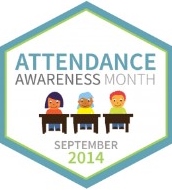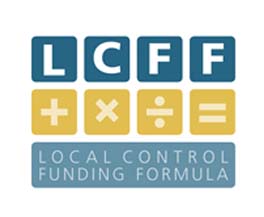by Kathryn Ramirez, Trustee, Salinas Union High School District and CSBA Director-at-large, Hispanic While I am optimistic about the direction education is headed in California, we must acknowledge that far more needs to be done if we are going to close race-based achievement gaps that […]
Category: Conditions of Children
Conditions of Children
Why Attendance Matters; At Least To Me
by Mike Walsh, Trustee, Butte County Office of Education and CSBA Director-at-large County I’ve come to appreciate a few accomplishments in my life thus far. Some were planned, such as starting my own company, completing my graduate degree, and learning to play the guitar. Many […]
Hungry kids can’t learn: More districts are expanding their free lunch programs
Lunch will now be free for students in the Palm Springs Unified School District who used to receive a reduced lunch price of 40 cents per meal, the Board of Education recently decided. This will positively impact the achievement of some low-income students whose families still cannot afford the reduced meal prices. Research has shown that children learn better when they are properly nourished. The change is set to go into effect at the start of the 2014-15 school year and will cost the district about $14,000 monthly, which will be paid by the district’s nutrition fund, separate from general fund dollars.
Counting low-income students for LCFF: CSBA and school meal advocates seek to reconcile state, federal methods
CSBA is striving to find a resolution that will ensure hungry students are fed and that participation in school meal programs continues, while also ensuring LCFF funding and accountability provisions are met.
New suspension/expulsion stats confirm use of discipline alternatives
The report that suspensions are down in California schools is welcome news to educators, students and their families—and a focus on alternative disciplinary strategies is getting the credit. A reduction in the number of actions for willful defiance (called student defiance in the official report) and a shift to programs like restorative justice that promote respect and personal responsibility have helped reduce expulsions by 12.3 percent and suspensions by 14.1 percent during 2012-13, State Superintendent of Public Instruction Tom Torlakson announced last week.
CSBA-Drexel partnership yielding practical guidance for school boards
The CSBA/Drexel University Post-Doctoral Fellowship Program, launched in the spring of 2013, provides CSBA members with valuable information from the research work of the post-doctoral fellows and for the fellows, in turn, to have the opportunity to share their research with a key audience of school board members. Working with Policy and Programs staff, the fellows edited their extensive dissertation research into user-friendly governance briefs and succinct presentations at this year’s Annual Education Conference and Trade Show.
How can parents help their children succeed in school?
School district and county Local Control and Accountability Plans provide excellent opportunities for school district and county leaders to form new relationships with parents, as well as enhance existing ones. According to the panelists, if school district leaders genuinely engage parents in the LCAP process they will find enthusiastic allies in their children’s education.
Do healthy kids make good learners?
Regular check-ups, dental care, eyeglasses, and other needed preventive care make a difference in how well children learn. Kids who are insured miss fewer school days and are better able to concentrate in class.
Schools have a role in helping children get health insurance
CSBA is partnering with The Children’s Partnership “All In” campaign to help schools get information out to families and employees about the new affordable health coverage opportunities. Covered California, California’s new health insurance marketplace, opened on Oct. 1 and offers ways for millions of Californians to obtain health coverage, including health and dental coverage for children.
Partial credit for foster youth—a tool for LCFF success
The Local Control Funding Formula affirms the state’s commitment to provide additional resources to students with greater challenges, foster youth among them. Because students in the child welfare system often move from home to home and school to school, they frequently lose academic credits that can put them at risk of not graduating on time.








